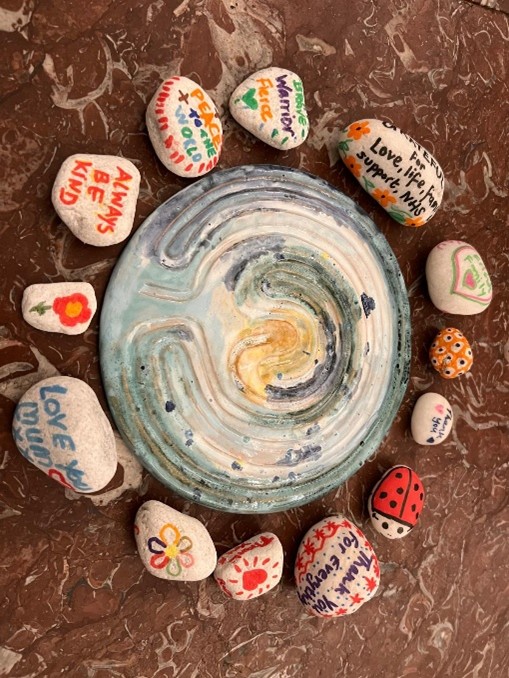News from our Sector Ministers
Lisa Rainier
Chaplaincy at The Royal Marsden Cancer Hospital
‘Being human, being present and being good news,’ is one way of describing what we seek to be as Healthcare Chaplains at the Royal Marsden Hospital, and I am grateful for the opportunity to share with you some of the encouragements we receive and the challenges we face as we seek to ‘do’ this ‘being’!

I have appreciated continuing opportunities to engage with the children in our care, especially in the setting up of a prayer tree for them in the chapel. They are given leaves or doves to name and decorate and we are then able to pray for them as we gather round the tree in our weekly prayer and reflection time.
Please pray for our continued attentiveness to God’s presence and activity in the lives of both individuals and the organisation and for creativity in our responses.
We currently face some significant challenges around the space and conditions needed for a diverse staff in respect of prayer facilities in the hospital. We are also stretched as a small team working across two sites, with a substantive member of staff unfortunately signed off with long term sickness.
So, we would really appreciate your prayers for peaceful dialogue and hospitality, healing for our dear colleague and our continued sustaining as a team in this season.
Meanwhile, we are grateful for healthy indicators that chaplaincy is really embedded in the organisation, trusted and appreciated. Chaplaincy nominations in the upcoming staff awards are one sign of this – proffering the team both encouragement and the opportunity for a night out together.
And we recently had a member of staff who sought out the chapel in a time of real anxiety – and on meeting a chaplain there and receiving support which really made a difference to her, not only came back to say thank you, but has been positively evangelical in spreading the good news about us throughout the organisation ever since!